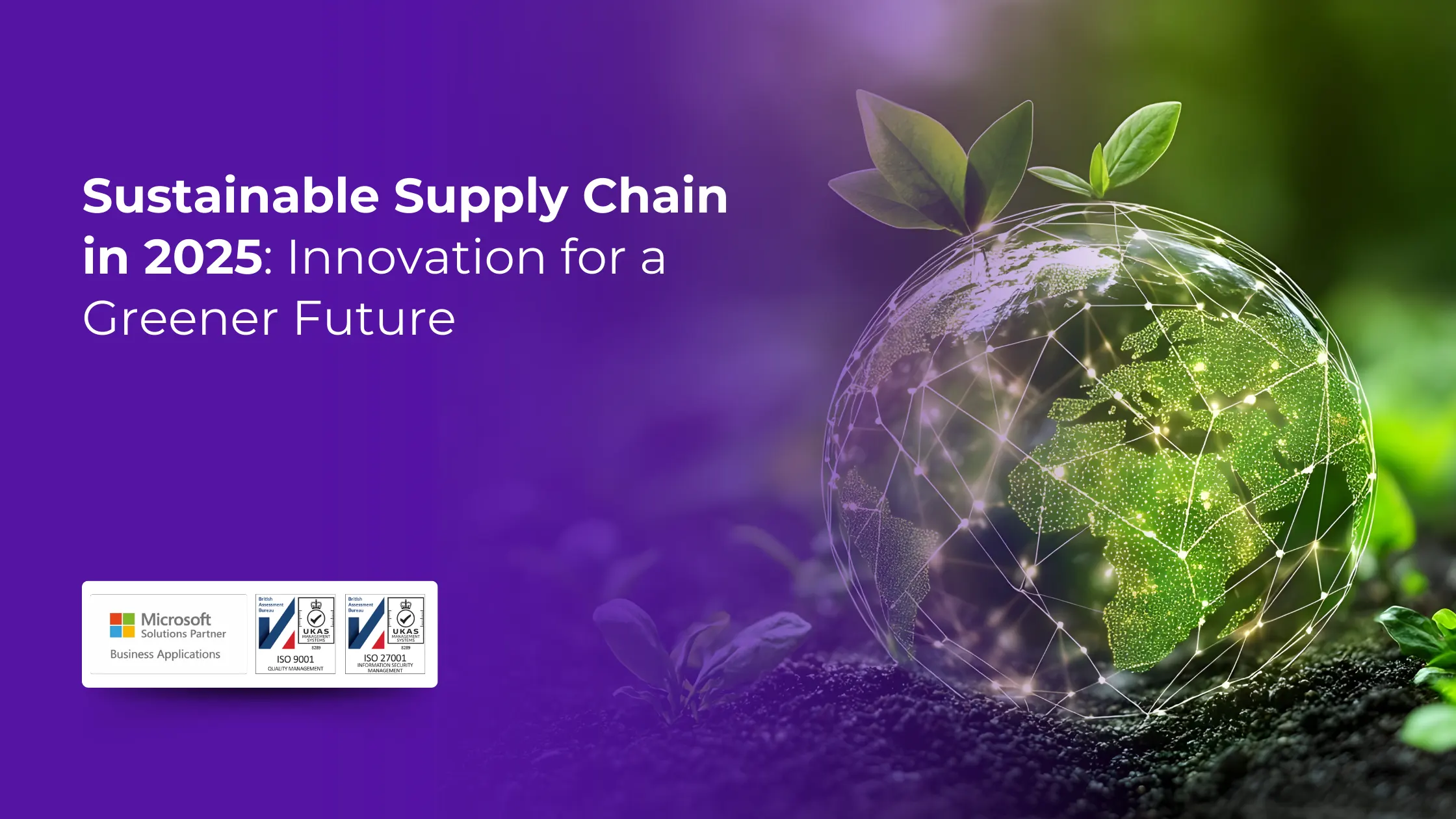With 2025 on the horizon, sustainability continues to dominate global business agendas. The ongoing climate crisis, combined with increasing consumer and regulatory pressures, is driving organisations to rethink their operations. Among these efforts, supply chain sustainability has emerged as a critical area of focus.
The Evolution of Sustainable Supply Chains
Modern sustainable supply chain management
integrates environmental and ethical principles across sourcing, manufacturing, logistics, and product lifecycle management. The goal is not only to reduce carbon emissions and conserve resources but to reshape supply chains into drivers of innovation,efficiency, and long-term value.
Traditionally considered a logistical function, the supply chain is now a linchpin in achieving global climate goals. Businesses are adopting cloud transformation strategiesand leveraging Microsoft cloud solutions to optimise processes, reduce waste, and enhance resource efficiency. This shift, driven by technologies like Microsoft Dynamics 365 and Azure IaaS services, is essential for resilience in today’s dynamic environment.
Why Supply Chain Sustainability Matters
- Environmental Impact
Supply chains contribute significantly to greenhouse gas emissions and waste. Sustainable practices, such as adopting circular economy principles and optimising routes with tools like Microsoft Dynamics Supply Chain Management, reduce the ecological footprint while aligning with consumer demands for eco-friendly solutions. - Economic Resilience
In a world of geopolitical instability and natural disasters, traditional supply chains are vulnerable. Sustainable supply chains built on AI-driven insights and diversified networks ensure operational continuity and safeguard revenues, especially when leveraging Microsoft Azure Cloud Services for scalability and security. - Social Responsibility
Beyond environmental concerns, sustainability addresses ethical issues such as fair wages and safe working conditions. Transparent and ethical supply chains foster trust, enhanced through tools like Microsoft Dynamics 365 for Nonprofits and CRM software Microsoft solutions.
Microsoft Dynamics 365: Transforming Supply Chains
The road to supply chain innovation is paved with technologies like Microsoft Dynamics 365 Supply Chain Management (D365 SCM), which provides cutting-edge solutions for achieving sustainability goals.
Key Features for a Sustainable Future:
- Enhanced Visibility and Transparency
Gain real-time insights into supply chain operations, tracking environmental and social impacts.Azure IaaS services list integrates seamlessly, providing comprehensive visibility. - AI and DataAnalytics
Utilise AI-driven insights to optimise transportation, reduce emissions, and identify inefficiencies. - Lifecycle Management
From procurement to recycling, Dynamics 365 Supply Chain fosters a circular economy. - Paperless Operations
Digital workflows reduce reliance on paper, aligning with eco-friendly practices. - IoT and Energy Efficiency
Monitor and manage energy use in real-time, leveraging IoT capabilities in Azure Cloud.
Embracing Innovation for a Sustainable 2025
Microsoft Dynamics 365, coupled with Microsoft cloud computing, positions businesses to meet the challenges of 2025. By embracing advanced tools and technologies, organisations can turn sustainability challenges into opportunities for growth.
- Cost-Effective Solutions: Tailored pricing plans like ]Dynamics 365 Business Central Essentials Pricing ensure affordability.
- Comprehensive Tools: Integration with Azure Active Directory B2C and Microsoft Dynamics 365 CRM Pricing makes solutions accessible for businesses of all sizes.
Conclusion
As 2025 approaches, the call for sustainable supply chains is more urgent than ever. Solutions like Microsoft Dynamics 365 and Azure Cloud Managed Services enable businesses to lead the way toward a greener, more equitable future. By leveraging the tools and strategies discussed, companies can meet both regulatory demands and customer expectations, fostering long-term value and resilience.
Let’s build a sustainable world, one supply chain at a time.
